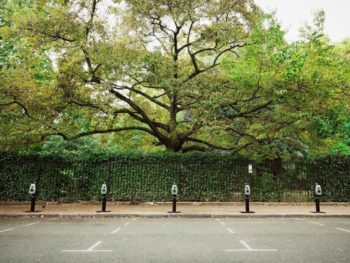Overnight charging essential for EV adoption
Government electric vehicle charging plans should switch from focusing on rapid charging to on-street residential and workplace charging to incentivise more people to transition to electric vehicles.

67% of EV owners would not have bought an EV if they had to rely on public chargers
The somewhat controversial view comes from EV infrastructure company Connected Kerb in a new report published on the back of research indicating that access to charging where cars were already parked – but not public rapid chargers – was a key factor in decisions to switch to EVs.
Carried out among 500 people who were EV owners or interested in EV ownership, the research found 64% of current EV owners do the majority of their charging overnight, while only 11% do it at public rapid chargers, 5% at ultra-fast chargers, and 5% at work, mostly those who do not have a place to charge on their property.
Two-thirds (67%) of EV owners would not have bought an EV if they had to rely on public chargers.
And nearly nine in 10 (89%) of non-EV owners would be encouraged to make their next car purchase an EV if they had a space to charge it overnight.
The research has been published after last week’s Budget saw the chancellor pledge £500m over five years to implement rapid charging hubs; a move said to be ‘backing the wrong horse’ by Connected Kerb.
Chris Pateman-Jones, CEO of Connected Kerb, said: “This shows that EV drivers charge at home if they possibly can. They use public chargers only when their preferred option is not available. They do not think like petrol vehicle owners, going to a fixed location to ‘fill it up’ – once people buy an EV their mindset quickly switches to wanting their car to charge whilst it is parked, so that it is charged when they get in.”
He added: “If we want to go from a few early adopters to near total EV uptake in 15 years, the ideal would be for everyone to have a home charger. But since this is impossible for those without a driveway – up to 62% of the population – we need alternatives that meet the same expectations of charging whilst the vehicle is parked.
“Charging infrastructure should focus on large numbers of slow chargers where people already park their cars – on street or in work car parks – with ultra-rapids at natural breaks on long journeys such as motorway service stations. The inconvenient and expensive public chargers that people have to drive to, and wait around for, will become a thing of the past.”
The full report can be viewed at: https://www.connectedkerb.com/thought-leadership

